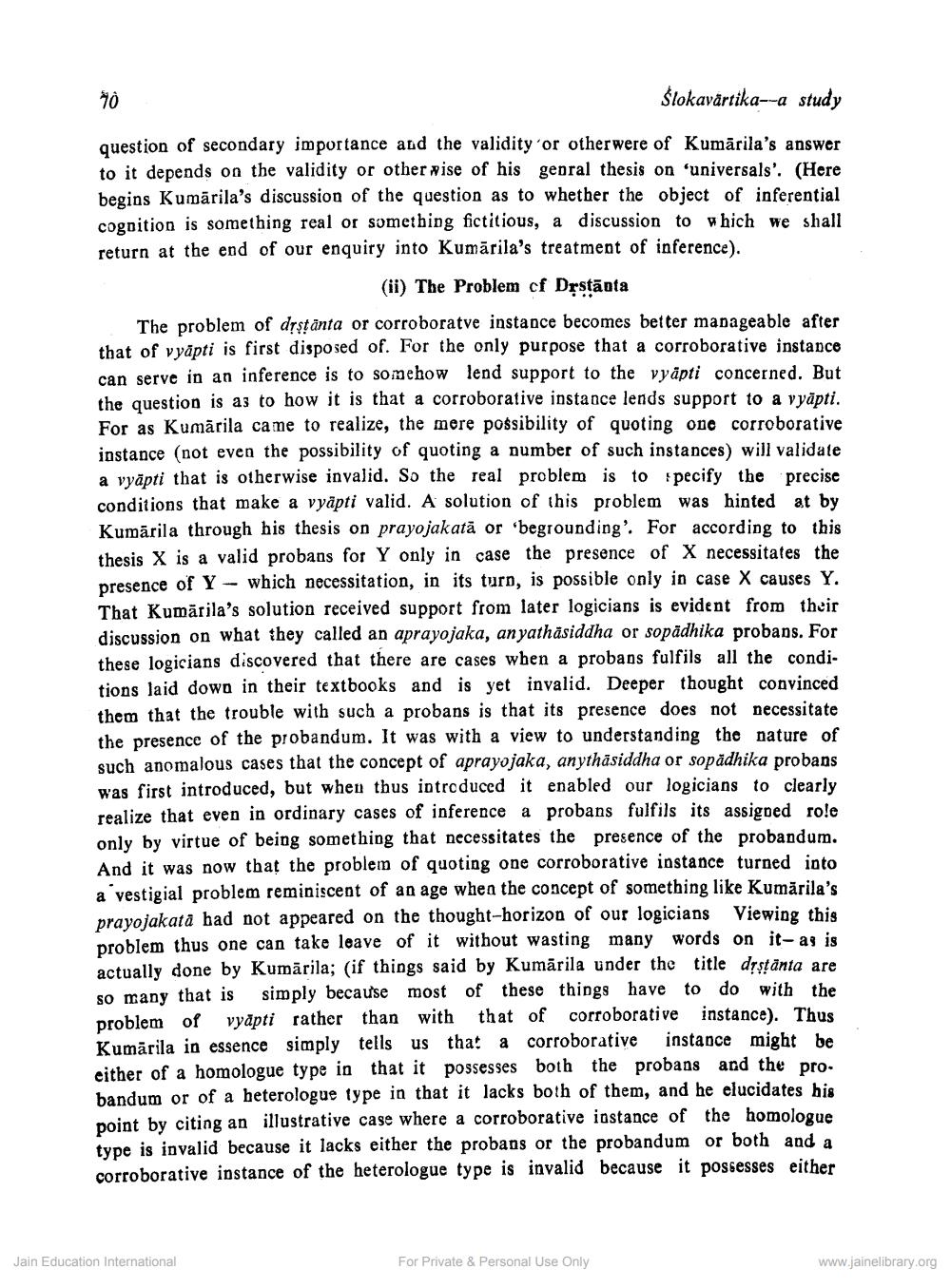________________
Štokavartika-a study
question of secondary importance and the validity or otherwere of Kumarila's answer to it depends on the validity or otherwise of his genral thesis on 'universals'. (Here begins Kumārila's discussion of the question as to whether the object of inferential cognition is something real or something fictitious, a discussion to which we shall return at the end of our enquiry into Kumärila's treatment of inference).
70
(ii) The Problem of Destanta
The problem of drstanta or corroboratve instance becomes better manageable after that of vyapti is first disposed of. For the only purpose that a corroborative instance can serve in an inference is to somehow lend support to the vyapti concerned. But the question is as to how it is that a corroborative instance lends support to a vyapti. For as Kumarila came to realize, the mere possibility of quoting one corroborative instance (not even the possibility of quoting a number of such instances) will validate a vyapti that is otherwise invalid. So the real problem is to specify the precise conditions that make a vyapti valid. A solution of this problem was hinted at by Kumarila through his thesis on prayojakată or 'begrounding'. For according to this thesis X is a valid probans for Y only in case the presence of X necessitates the presence of Y which necessitation, in its turn, is possible only in case X causes Y. That Kumarila's solution received support from later logicians is evident from their discussion on what they called an aprayojaka, anyathasiddha or sopadhika probans. For these logicians discovered that there are cases when a probans fulfils all the condi tions laid down in their textbooks and is yet invalid. Deeper thought convinced them that the trouble with such a probans is that its presence does not necessitate the presence of the probandum. It was with a view to understanding the nature of such anomalous cases that the concept of aprayojaka, anythäsiddha or sopadhika probans was first introduced, but when thus introduced it enabled our logicians to clearly realize that even in ordinary cases of inference a probans fulfils its assigned role only by virtue of being something that necessitates the presence of the probandum. And it was now that the problem of quoting one corroborative instance turned into a vestigial problem reminiscent of an age when the concept of something like Kumārila's prayojakata had not appeared on the thought-horizon of our logicians Viewing this problem thus one can take leave of it without wasting many words on it- as is actually done by Kumārila; (if things said by Kumarila under the title distanta are simply because most of these things have to do with the so many that is problem of vyapti rather than with that of corroborative instance). Thus Kumārila in essence simply tells us that a corroborative instance might be either of a homologue type in that it possesses both the probans and the probandum or of a heterologue type in that it lacks both of them, and he elucidates his point by citing an illustrative case where a corroborative instance of the homologue type is invalid because it lacks either the probans or the probandum or both and a corroborative instance of the heterologue type is invalid because it possesses either
Jain Education International
For Private & Personal Use Only
www.jainelibrary.org




